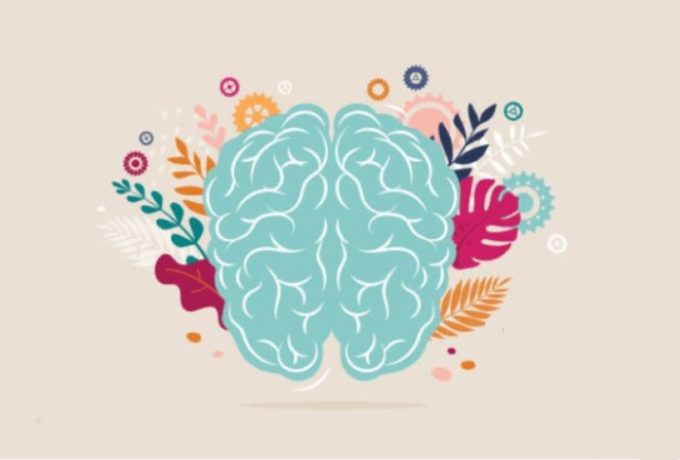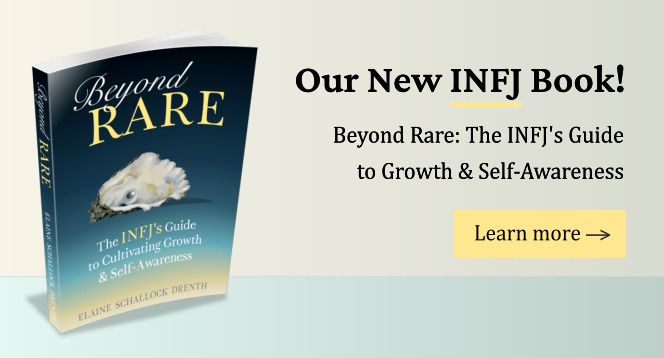
(Updated 8.4.2023)
Having just spent a week under the same roof with an INFJ and ENFJ, I was reminded of their many similarities, as well as their differences. In this post, I’ll share some of what I’ve learned about these personality types over the years.
According to type theory, INFJs are first and foremost “Inner Perceivers” (see my post Rethinking Judging and Perceiving in Introverts for more on this). Their initial purpose is to absorb and synthesize information rather than apply it toward some external end. Concerns about implementation emerge only after achieving some level of intuitive clarity or conviction.
In leading with Extraverted Feeling (Fe), ENFJs are predominantly “Outer Judgers.” Their first inclination is to identify external problems they can fix or manage. They are less apt than INFJs to thoroughly perceive or process a problem before taking steps to address it. ENFJs can thus be seen as sacrificing some measure of accuracy or comprehensiveness for expediency’s sake.
INFJ vs. ENFJ Social Presentation
Despite their preference for Introversion, INFJs can be quite talkative. For reasons outlined in Elaine’s INFJ book, they’re easily the most talkative of the Introverted types and, consequently, not infrequently mistaken for Extraverts. But in the presence of a verbally quick and loquacious ENFJ, the INFJ looks like a typical Introvert, even finding it difficult to “get a word in edgewise.” There’s really only space for one conversational alpha in a room, and many ENFJs are happy to inhabit that role.
ENFJs love to wax eloquent about their personal experiences, perspectives, social connections, and perceived moral / political injustices. Others immediately sense and are typically impressed by this type’s social intelligence—their natural charm, quick wit, and verbal fluency. That said, once an ENFJ’s light has lured you into her web, it can be difficult to escape. Once you’ve been selected as their listening ear, you better hope you’ve blocked off some time on your schedule:) In all fairness, not all ENFJs are relentless jabberers or conversation hogs. Some exude a social presence and intensity which exert plenty of influence without words.
Assuming an ENFJ isn’t taking center stage, an INFJ can supply a room with warmth, enthusiasm, and social energy. While it’s true that INFJs don’t particularly relish carrying the social load, their Extraverted Feeling (Fe) function can be slow to let them off the social hook, especially if no one else is willing to step up. INFJs often pay the price afterward, however, requiring additional Introverted time to unwind and recoup.
When observing an INFJ who is socially or relationally “off duty,” their eyes and face convey that they are “somewhere else.” They exhibit what might be best described as a dreamlike quality, suggesting that they aren’t fully present or connected to the outside world. This disconnect melts away, however, once their relational radar detects a potential need or obligation. Functionally, this can be seen as a switch from their dominant function, Introverted Intuition (Ni), to their Extraverted auxiliary function (Fe).
Since ENFJs lead with Fe rather than Ni, they’re more reliably engaged with the world around them—more observant, active, energetic, and open to spontaneous social engagement. For people who enjoy regular social interaction, ENFJs’ interpersonal openness is apt to be particularly welcomed and appreciated. Assuming they aren’t overly narcissistic, it’s hard to feel lonely with an engaging ENFJ around.
INFJ – ENFJ Responses to Stress & Struggles
Highly sensitive INFJs, in particular, can be easily overwhelmed and struggle to effectively navigate the stressors and challenges of daily life. They can be prone to feelings of discontent, depression, defeat, and victimhood. Others may see such INFJs as self-absorbed—consumed with their personal struggles and difficulties. When faced with accusations of self-absorption, INFJs will often reply that they’re burdened with guilt or concerns about other people and should therefore be approached with empathy rather than condemnation. More than any other type, INFJs are susceptible to collapsing under the weight of their own moral dictates and perfectionism. Rarely, if ever, have I observed this sort of moral heaviness in INFPs, suggesting INFJs’ Judging preference as a probable contributor.
ENFJs can have strong moral concerns as well, but they’re less apt to appear bogged down or overwhelmed by them. As Extraverts, they display a certain toughness or resilience that INFJs may lack. Instead of turning inward to work through their moral or emotional concerns, ENFJs focus on changing the world or people around them. Indeed, one can get the sense that ENFJs always see problems as existing outside themselves. Even those with an extensive track record of broken relationships may vehemently deny any personal wrongdoing. While both of these types can seem outwardly stubborn and opinionated, ENFJs seem less open to the possibility that they could be or have been wrong about something. In short, INFJs can lack resiliency which limits their competence in external life, while ENFJs may lack humility and the ability or willingness to see themselves (especially their shortcomings) objectively.
Idealism in INFJs & ENFJs
Both of these types are highly idealistic and perfectionistic. Intuition (N) envisions the ideal and Judging (J) lends a sense of conviction about its veracity, importance, and urgency. The presence of the Feeling (F) function means that, more often than not, these ideals will be social, aesthetic, or psychospiritual in nature. Both types also want to play a role in changing minds, often by drawing on their powers of Fe persuasion. Because ENFJs are more assertive and confrontational, however, they’re more outspoken and proactive idealists. Suckers for a lively debate, they’ll readily challenge anyone who violates their cherished ideals.
INFJs can also be confrontational, but tend to be a bit choosier with their battles. And since they don’t possess the same inexhaustible optimism of ENFJs, they’re somewhat likelier to accept the fact that change may not happen as fast as they’d like. Most INFJs understand that psychological defenses are strong, which means change will often be slow. INFJs can thus be dubious of ENFJs’ tacit belief that, given enough persuasion and educational effort, change is all but guaranteed. As Introverts, INFJs are more apt to see people as individuals, each at different points in their life’s journey and each with a different capacity or readiness for change. In other words, changing others’ minds is less controllable than most ENFJs are willing to concede.
Mutual Admiration & Criticism
In sharing all the same cognitive functions but in a slightly different order, both types intuitively recognize something familiar in the other, as well as something enviable. The ENFJ is apt to see great unrealized potential in the INFJ which if actualized could be incredibly beautiful and powerful. Likewise, the INFJ may admire and strive to emulate the ENFJ’s extraverted charisma and courage.
Despite this mutual admiration, these types can also be critical of the other. ENFJs may feel frustrated when INFJs’ emotional turbulence impairs their ability to make consistent progress toward goals. While the INFJ may in some respects feel she is making inner progress, the ENFJ wants to see more extraverted fruit, that is, outer change and effectiveness.
INFJs may take issue with the ENFJ tendency to make quick or premature judgments. From the INFJ’s perspective, making judgments or taking action is futile if based on inaccurate perceptions or insufficient information. They may also bemoan ENFJs’ parental attitude, stubbornness, or unwillingness to admit personal faults or mistakes.
Learn More in Our Books:
The 16 Personality Types: Profiles, Theory & Type Development
Beyond Rare: The INFJ’s Guide to Growth & Self-Awareness
